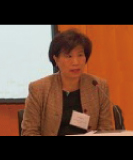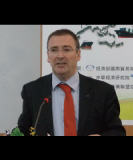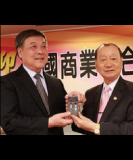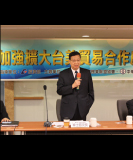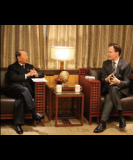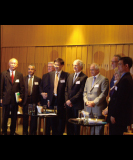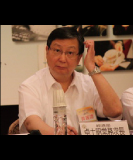You are browsing > Service Trade > Trade Info
WTO members review five regional trade agreementsWTO
WTO members considered five regional trade agreements (RTAs) involving the Association of Southeast Asian Nations (ASEAN); Azerbaijan; Georgia; Honduras; Hong Kong, China; Japan; the Republic of Korea; Moldova; Peru and Ukraine at the meeting of the Committee on RTAs on 27 July. The new chair of the Committee, Ambassador Mārtinš Kreitus of Latvia, presided at the meeting.
The Committee on RTAs considered the Free Trade Agreement between ASEAN and Japan, which entered into force for the parties between 2008 and 2010. The parties noted that by the time this agreement had entered into force for all parties, bilateral economic partnership agreements (EPAs) between Japan and seven ASEAN member states had already entered into force. The Agreement served as an important building block for the economic integration and integrity of the region. By April 2026, ASEAN states will have liberalized 76 to 100 per cent of tariff lines for imports from Japan. Japan will have liberalized almost 88 per cent of its tariff lines for imports from ASEAN.
Japan said the Agreement applies a rule that allows for the cumulation of rules of origin, meaning that products made up of components manufactured among the FTA parties can qualify for preferential tariffs. Two-way trade in value terms has expanded by 14.8 per cent in ten years since 2008 although it was difficult to evaluate separately the effects of this agreement from the relevant bilateral EPAs.
ASEAN is the second-largest trade partner of Japan while Japan is the fourth-largest trade partner of ASEAN. The parties have expanded the Agreement's initial provisions on trade in services and investment by concluding the First Protocol to Amend the Agreement. This will enter into force on 1 August 2020 and includes concrete provisions in these two areas.
Members also considered the goods aspects of the Free Trade Agreement between ASEAN and the Republic of Korea, which entered into force on 1 January 2010. The goods aspects of the Agreement will also be considered in a forthcoming meeting of the Committee on Trade and Development. The trade in services aspects of the Agreement had been considered by the Committee in 2018.
Korea will liberalize over 76 per cent of its tariff lines for imports from ASEAN while ASEAN members will liberalize between 85 and 100 per cent of their tariff lines for imports from Korea. Korea noted the increase in bilateral trade volumes, which it said will continue through the close cooperation among parties to the Agreement. Korea added that parties are currently negotiating market access for sensitive goods to enjoy additional benefits. Thailand, on behalf of ASEAN, said the Agreement builds on existing WTO commitments and provides for a progressive liberalization of trade through substantial coverage of various sectors. Thailand noted that Korea is currently the fifth-largest trading partner of ASEAN and its tenth largest source of foreign direct investment.
For the Free Trade Agreement between Hong Kong, China and Georgia, parties to the Agreement, which entered into force on 13 February 2019, highlighted the benefits it has brought to trade and investment in both parties. Georgia eliminated tariffs on 96.6 per cent of its tariff lines on imports from Hong Kong, China while Hong Kong, China bound its existing zero duty tariff regime.
Hong Kong, China said the Agreement provides legal certainty and enhances trade and investment flows. It further noted that the Agreement covers a comprehensive range of services sectors and includes provisions on investor protection, intellectual property rights, competition, environmental sustainability, transparency and dispute settlement. Georgia said the Agreement is a positive tool to increase attractiveness to traders and investors. It added that the Agreement, the first instrument of Hong Kong, China with the region, serves as a platform for trade with markets in the European Union, the Commonwealth of Independent States and Turkey.
Peru, speaking on behalf of the parties to the goods and services aspects of the Free Trade Agreement between Peru and Honduras, said the Agreement underlines the importance of using trade as a motor for growth, particularly in the aftermath of the COVID-19 crisis. The Agreement entered into force on 1 January 2017.
Peru and Honduras will liberalize around 99 per cent of their tariff lines on imports from each other by 2031. Moreover, the liberalization of trade in services goes beyond the parties' respective commitments under the WTO's General Agreement on Trade in Services. Peru said the Agreement establishes a legal framework that is predictable for all trading activities and it will open up new opportunities for small enterprises. Bilateral trade amounted to only US$ 66 million in 2019 but this figure should grow in the post-pandemic phase, Peru added.
Members also considered the Free Trade Agreement between the GUAM participating states of Georgia, Ukraine, Azerbaijan and Moldova. The Agreement eliminated tariffs on all goods among the parties upon its entry into force on 10 December 2003. The Agreement also has a rendezvous clause to liberalize trade in services in the future.
Georgia said the Agreement will significantly support investment in the participating states. The parties are working on regulating rules of origin for the Agreement, Georgia added. Ukraine said the full implementation of the Agreement will help parties achieve a predictable trade environment and will stimulate development. Moldova said free trade agreements like this are an important supplement to the multilateral trading system. Azerbaijan, a WTO observer, said the Agreement builds on positive developments parties have already enjoyed with individual GUAM member states under existing free trade agreements.
Implementation of the RTA Transparency Mechanism
The Chair of the Committee informed members that 53 RTAs have still not been notified to the WTO. In addition, there are 27 RTAs involving WTO members only and a further 25 involving non-members for which a factual presentation has to be prepared, counting goods and services separately. The Chair said he had held consultations with delegations for which the RTA factual consideration remains delayed due to the lack of comments or data from the members involved.

